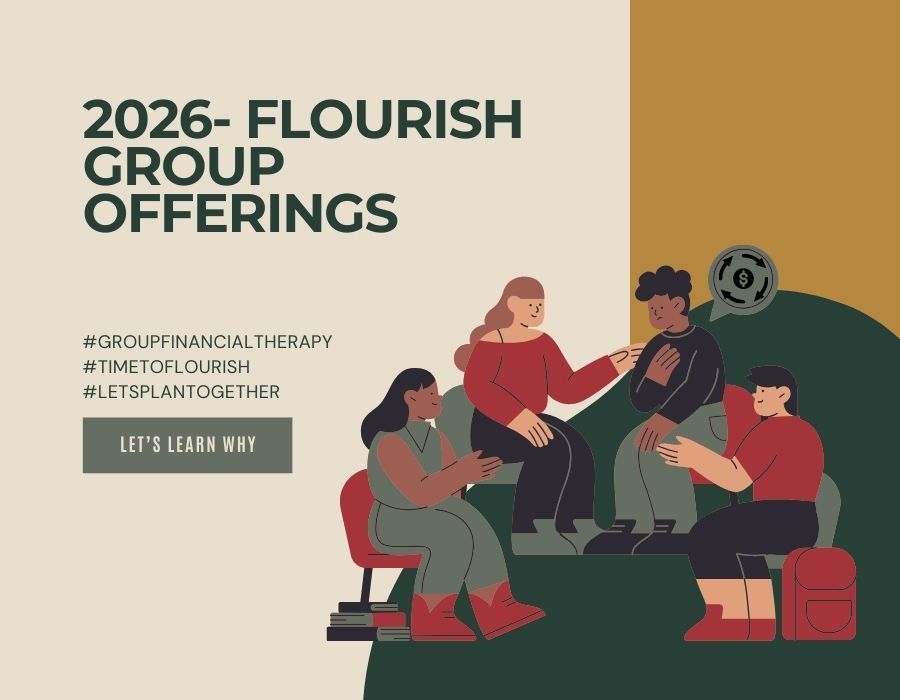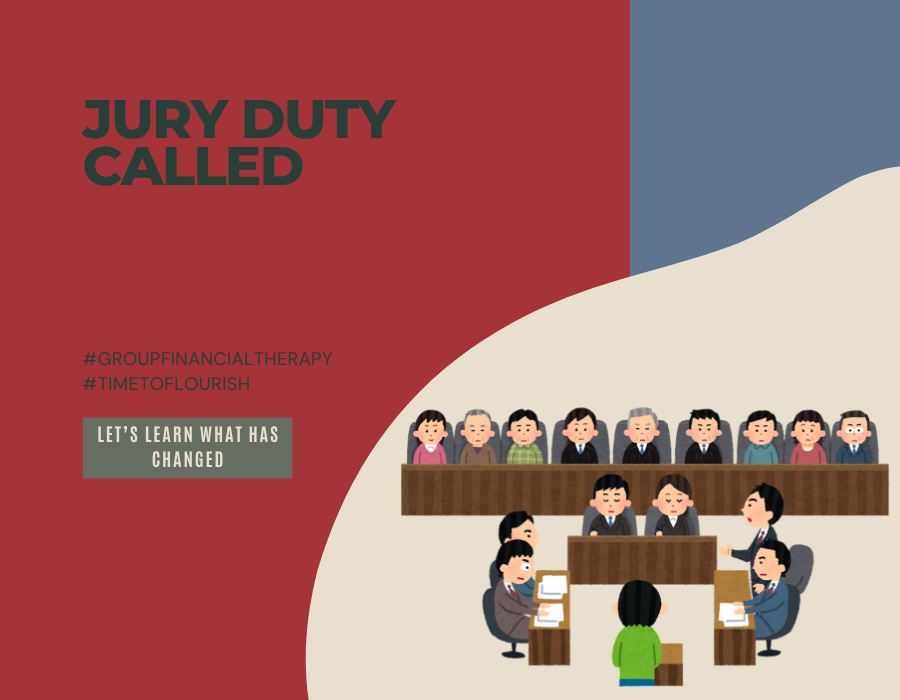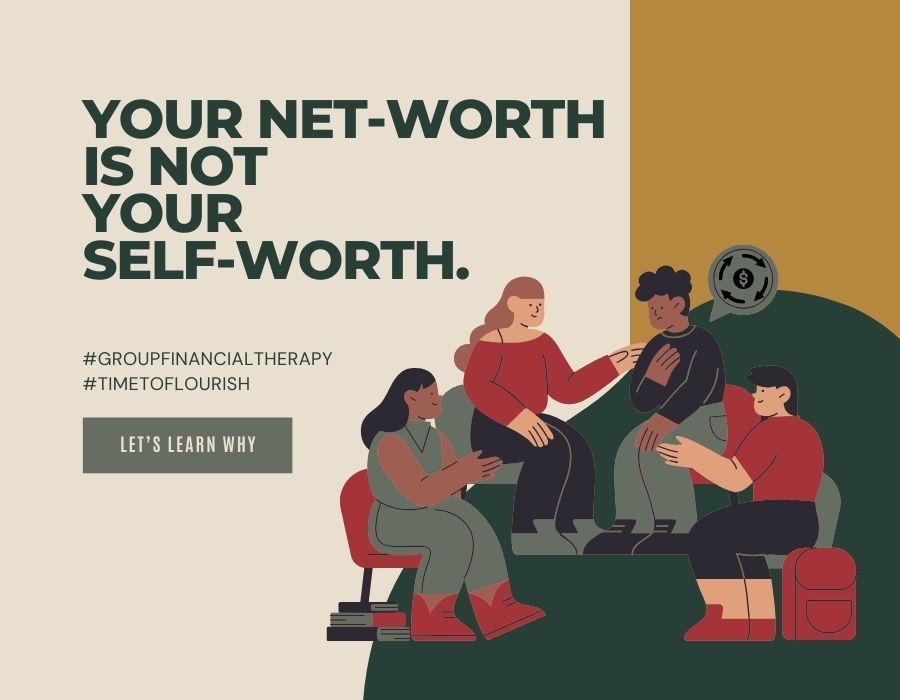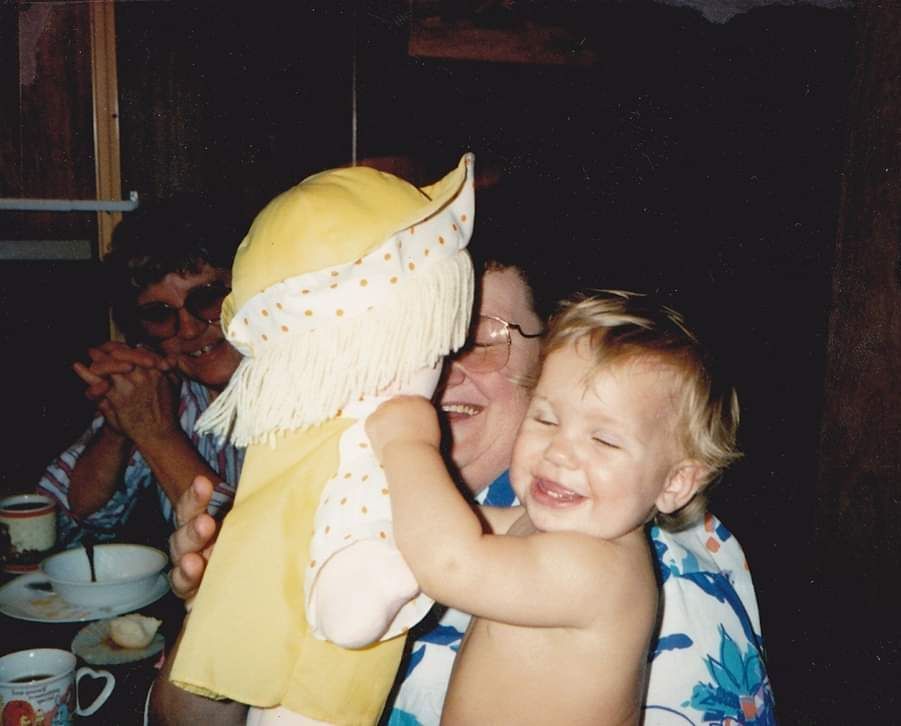Post-Conference Clarity: Lessons That Endure from the 2025 Financial Therapy Association Conference
As I write this it has been 10 days, 12 hours, and 30 minutes since I returned home from the 2025 Financial Therapy Association Annual Conference (FTAC25) in Athens, Georgia—a powerful gathering of minds from the financial and mental health worlds.
I’ve wanted to attend for years after hearing mentors describe how special it is. They often mentioned how inclusive and warm the community felt, and based on the financial therapists I’ve met along the way, I believed them. I had met many members of the FTA and had proof.
What I didn’t expect was the depth of that warmth—an overwhelming kindness and love from people I’d only just met.
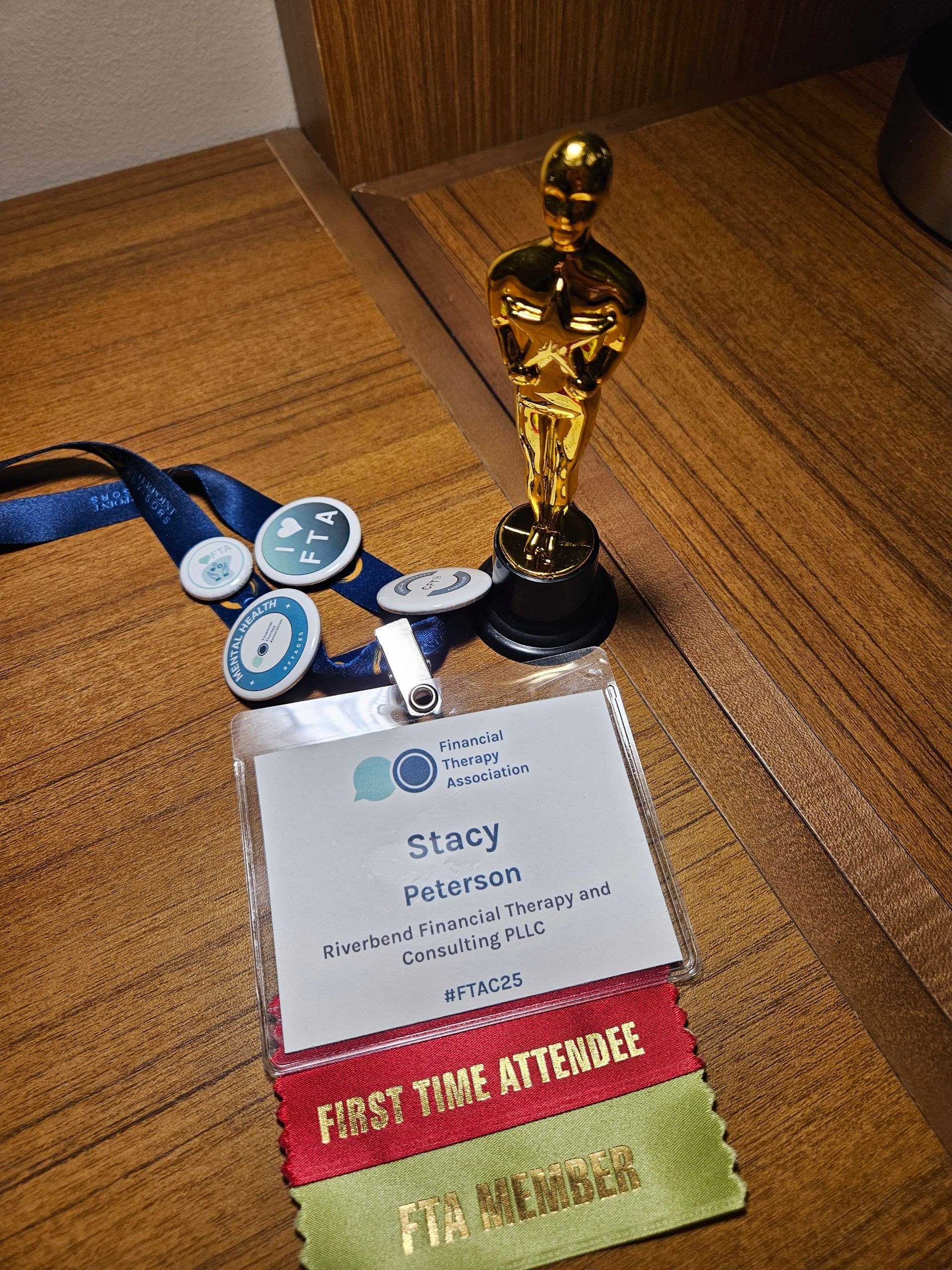
I am no longer buzzing. The information (as much as I could) has been integrated into my mind in a way that feels calm and usable. I do, however, still get very emotional if others ask me how the conference went and what I learned while I was there.
Assumptions that I held prior to showing up in Athens, that were proven from the very first breakfast in the hotel:
- People will be kind, open and willing to talk to me.
- I can lead with myself and trust that others will hold space for me.
- I will not be judged as a “small town, know nothing” person.
What I didn’t know:
- I will be acknowledged, seen, and celebrated.
- I would share myself with others, and they would ask me to know more.
- Being from Montana was celebrated and allowed for so many great conversations about culture and weather
- I would not be anxious and uncertain getting to know new people because the culture breathes inclusivity no matter what race, culture, religion or other affiliation that would typically divide the emotion, laughter, and tears in the room. The calm excitement for possibility and inclusivity in my world is still being felt.
- What I was going to emotionally experience this week was the EXACT thing that I need to be able to provide my financial therapy clients—Calm excitement to talk about a topic that has so much baggage, but also so much hope. A loving welcoming to the table.
- I would cry all the tears leaving everyone that I had just met for the first time or the first time in person. (Don’t get me wrong, I knew I was a crier, but it was so much more than the tears of an exhausted woman with a tired brain 😉)
Highlights
“90s Throwback” Reception
I thought about what I was going to wear for this event for WAY TOO LONG! And I LOVED every minute of it!!!
I have been in the “dance like nobody’s watching” belief for many years. I LOVE to dance and move my body and scream the lyrics at the top of my lungs! I want to be able to dance with others as well. I learned in high school at one of my first jobs working maintenance at the Montana State Fairgrounds how to jitterbug between scrubbing the beer from the chairs and cleaning the bathrooms from the previous night’s concert. I never really had a solid dancing partner, so I would have to be the one to lead. To this day I don’t have a solid dance partner, so when the opportunity arises, I don’t have a problem asking someone to dance. Thank-You to Hope for being my inaugural FTAC jitterbug partner. Being able to meet up with a few of the people we had met in the breakout sessions that afternoon in a fun interactive way was a great way to break the ice for even better connections throughout the week! Thank- You Khara for being my date and being willing to stay for “just one more song.” Great work, conference committee, for throwing a great party!
The Neuroscience of Financial Behavior: Connecting Hidden Patterns for More Effective Therapy
I had read the few newsletters that Oliver had put out after we had connected on LinkedIn. I was absolutely intrigued. A neuroscientist in financial therapy? It makes SO MUCH sense. I started my career as a teacher and have always been intrigued with how we end up the way that we do and discerning the nature vs. nurture debate in relation to our behavior and the impacts of trauma. I read many books by Daniel Siegel starting with Parenting from the Inside Out: How a Deeper Self-Understanding Can Help You Raise Children Who Thrive. From that moment on, the way that I looked at how children behave made so much sense, and subsequently it made me deep dive into why I react/behaved/got anxious about different situations in a way I didn’t like even though I had “worked on it” and REALLY didn’t want to react in the same way in the future. It kept happening. As I transitioned from education to counseling I brought the window of tolerance education with me and have used it with clients of all ages. Now that I work only with adults, I have found that the way in which even adults are completely disembodied is a huge issue in their ability to make permanent changes. In this session with Oliver I was able to gain connections to the actual “hard parts” we are made of as humans and what those parts in our brains are supposed to do when they are working well and when they operating in ways that we don’t want why there is so much shame.
He talked about how Trauma & Procrastination, Perfectionism & Financial Anxiety, and Loss Aversion & Grief work in the brain in similar ways/areas. If we look at this from a financial therapy perspective, we can see how our default network in our brain is going to go to what it knows when the “climate” is feeling similar to ways that it has before. It then reacts in a way to protect us and follow what we have preprogrammed as our belief systems. No wonder why financial behavior is so difficult to change if we have negative beliefs about procrastination, perfection, and discomfort with loss.
Honestly, there are so many parts to his talk that I just want to deep dive and know so much more about including the individual parts of the brain and how so much of our life has created the default networks that we live with. There is hope in centering ourselves and recognizing how these networks are built to begin changing them. I just cant think about our brains and nervous system in the same way again. Thanks Oliver! You have unlocked a space that is going to be so fruitful in me helping my clients remove the shame from how their default mode networks operate so they can “rearrange the furniture” until it is operating closer to how they want it to!
Check out Oliver’s newsletter, Brain on Purpose. This first episode is what got Oliver on my radar and my excitement for what he has to say!
Treatment Planning in a Collaborative Financial Therapy
Nathan Astle and Tyrone White from The Financial Therapy Clinical Institute (FTCI)
Something I have been wanting to do for many months now is network with those that are close to me geographically and I have financial therapy clients working with them already to ensure that we are doing what is best for our clients. It is far too common to have people in different fields sharing contradictory information with clients, leaving money feeling even more elusive. I love the way that Tyrone and Nate were able to share the benefits of the collaboration from a financial coach and financial therapy perspective. I didn’t know Tyrone much before the conference, nor did we get to talk much during the conference, but I had met Nate a few times before—On the first morning before the conference in my “I’ll just go to breakfast in these clothes” clothes I ran into Nate. From the moment that he actually knew who I was, we hugged the best “I’m so happy to see you” hug, I knew that this was going to be a trend of the week. Nate and I had met on multiple occasions online and was excited to meet him in real life. Who in a Zoom call over a year ago told me “I am proud of you.” Which for those that know me, know that all of my tears fell. He was one that was not afraid to ask me where my belief systems came from and opened up a can of worms he was probably not anticipating would be opened. Thank you for giving me even more clarity as to what the whole “Certified Financial Therapist thing” looks like. Collaborative, non-competitive, client-centered with a clear path to whatever financial wellness looks like for the client.
Reflection
I know that for me I get to be regulated and calm when I can trust that my relationships are certain. When I know that I am OK and my relationships are OK, I have the ability excel. When I am uncertain or feel as though there is chaos in my relationships somewhere, I begin to struggle. By beginning the conference with a deep-dive into how my brain in reacting to certain situations that led to a crazy fun time at the 90s party I was able to dance like nobody was watching in a room full of others that were happy to dance along with me. Absorbing some examples of how treatment planning in financial therapy can look allowed me to take my experience with connection to then use that information to validate my processes in how I work with clients as well as how I think about my role as a financial therapist. I had so many different experiences that have me thinking deeper about how I can better my practice, but wanted to highlight a few that are still burned into my brain these many days out.
How It’s Impacted My Work
Confidence
- I actually do know things. We could call it self-esteem, imposter syndrome, or a mix of those and more, I find myself struggling to believe that my knowledge, that internally I am so confident is true) is actually…..real. It is almost like disbelief that I would be granted the possibility of having the knowledge and sharing it with the world. After going to the conference and affirming that many of the breakout sessions held information that I already share with clients and am PASSIONATE about sharing, I realize that the knowledge is really REAL! Not only real at this point in the growth of Financial Therapy, but research based.
- My brilliant mentor/supervisor/friend, Khara Croswaite Brindle, called me one of her “OG supervisees” stating that it has felt like longer than the almost 2 years since we exchanged the very first email to explore the possibility of me entering an emerging field in Montana where another Financial Therapist doesn’t exist for hundreds of miles across state lines. She has shown me that when a brain gains knowledge and continues to crave more that leaning into that knowledge and writing a book makes that knowledge concrete (and live on.) I have had the pleasure of watching her launch her most recent book Your Enneagram and Money: Transforming Enneagram Edges into Financial Freedom. Her endless smiles and excitement for the topic and the work that has gone into it has lit a fire under me for the past year to read SO many books and want all the knowledge to improve my skills as a financial therapist!
Clarity
- As the wise Ed Coambs said in his most recent blog reflection of the conference. “Financial therapy is no longer a fringe idea or a novel curiosity. It is a living, breathing professional discipline with depth, soul, and staying power.” This was FELT. The amount of research and clarity around financial therapy made it evident to me that I am entering this field at a pivotal moment. The field is not only growing, but is a field with a depth of research based practices that are proving to create not only knowledge filled financial therapists, but creating a standard that is allowing each of the professions represented (financially based or mental health based) to have starting place for how to interact with clients through a certified financial therapist lens.
Application
- I am revamping the ways in which I gather intake information about my clients. I have been struggling to know what the best practices would be in financial therapy as it is melding two very in deep topics into one comprehensive field, where I as a licensed clinical professional counselor have a focus on how people feel about their relationship with money. Do I ask more about feelings?? How much do I ask about what money looks like in their lives? Do I have enough information about their financial lives to see the impact of their finances? Can I see patterns and trends if I don’t ask for enough information? I am excited to implement many of the tools that Nate is utilizing in his work in making clearer treatment plans in ensuring that I am thinking about money and the human relationship as a bigger picture.
- My Flourish group has evolved since the conference. I have shown up in a confident way that has allowed me to spend more time building connection with and between the group members that replicates the inclusive kind environment that I walked into at FTAC. I have learned that the basis of connection is safety. If we can feel safe to ask questions, to be vulnerable, everyone benefits.
Community & Connection
The power of connecting with others in the field has changed me. The way that I am prepared to collaborate with others in my community and the ease that has been spread within my work has allowed me to speak with confidence about financial therapy when I am met with the “what is that?” statement or body language. Now that I have been face to face with those researching the beliefs that many of us have had for years, it has made it so real.
I feel prepared with trustworthy like-minded professionals that I can refer my clients to for further support. I like to empower my clients to “build their team of grown-ups.” By going to this conference, I have been able to truly understand how important it is to engage with other professionals that share common ground.
Some exceptionally notable connections I made and haven’t been mentioned yet:
- Amy Irvine—My FTAC25 spirit animal. She is my beautifully intelligent pocket sized spit fire of a woman with so much love and compassion to share in the financial therapy community and her clients, and a deep passion to help others. On the first day of the conference, after I put on my “OK I’m ready to see people for real” clothes on and washed my face I entered the elevator with another woman where we both acknowledged each other with a warm smile and silently rode the elevator to the 3rd floor. Where we were enthusiastically greeted by Dan O’Donnell (who I had met at breakfast earlier) entering the elevator who broke the ice between Amy and I by introducing himself exuberantly to Amy and invited her to go to lunch with us. As we went to lunch with many of those already mentioned I realized that there were extra chairs at the table for those from the conference that wanted to join. By the time we ordered, our table was full and I had gotten to know many things about Amy and her tolerance for cold weather and gluten. She shared with me as we walked out of the restaurant that introverts like her like meeting people like me. I affirmed that extroverts like me love being friends with introverts like her. We made it less than a week before we were making connections to share information. Thank you for your openness and excitement in getting to know me.
- Aja Evans—My fellow financial therapist acknowledged that her golden retriever energy saw mine, and was real excited to see it. In that very first lunch I told you about, I wanted to name the excited “golden retriever feelings” I was having and Ed Coambs just said “You are going to meet a lot of Golden Retrievers here…. [*and self-identified as one].” He wasn’t wrong. When I met Aja, outgoing Financial Therapy Association Board President, in person I was able to feel at peace. She said “I like you.” In a simple passing moment in the lobby of the hotel….. You see what she didn’t know about me, is that I find myself doing this frequently with people that I interact with and just enjoy their presence. It is many times met with a “well that was weird response” (in words or body language) so when going to the professional landscape I try to watch my “golden retriever energy” that wants to let everyone know that I see them, like them, and want to hang out with them. Aja didn’t. I loved it!
- Supremely Uncool High School Version of Myself—In the closing of the conference I was voted “Most likely to attend FTAC26” Because the theme of the conference was “Financial Therapy U” they had a link to vote for the superlatives of the conference. There is still possibly a voice inside of me that does not believe that out of the 175ish people at the conference that I would be voted for any of the 10 or so superlatives we were voting for. I am still a bit uncertain how there could be enough people in that room who would have even known my name to type in? Maybe only 12 people actually filled in the voting form??? No matter if it was real or not, it had an impact on the intensity of tears at the end of the conference. It was a nod and a wink to my younger self whose sophomore year did not exist in the yearbook at all. In a school of 1200 or so students I was excluded from the entire book including my school picture and the index of student names listed alphabetically in the back. While I know that my disbelief in my nomination being real is only half-hearted because my confidence and clarity in who I am as a person feels solid at this point in my life. Meeting my much younger self at that podium to get my beautifully cheesy trophy was such a delight to welcome her in and allow her to sit beside me in a room of people who saw me, cared about me, and loved me.
Final Financial Therapy Association Conference Reflection
I don’t want this community to shrink in my world. I want to build more connections, stay connected, and welcome conversations about how money and feelings intersect in the most wonderful, chaotic, hope-filled way. We are the change that is going to change the “nobody talks about money” narrative.
So, let's talk about money!
If you are curious about working with me through Flourish, my financial therapy group, or in individual financial therapy, I am excited to meet with you to have a no-cost, no-pressure conversation.
If we met at the conference and you want to have a cocktail over zoom and just hang out I would delight in a good geek out about allll things financial therapy! If you have a crazy busy life and the time that you take to have the fun financial therapy conversations is at FTAC, cool, let’s meet up in Austin in 2026! The conference attendees weren’t wrong….. I am, indeed, Most Likely to Attend FTAC26….. the conference tickets are already bought….. flights will be purchased soon.
Thank You— Financial Therapy Association and all of those that attended the conference for taking the time to talk to me and allowing me space to be myself and get all nerdy about a topic I am soooo passionate about!


